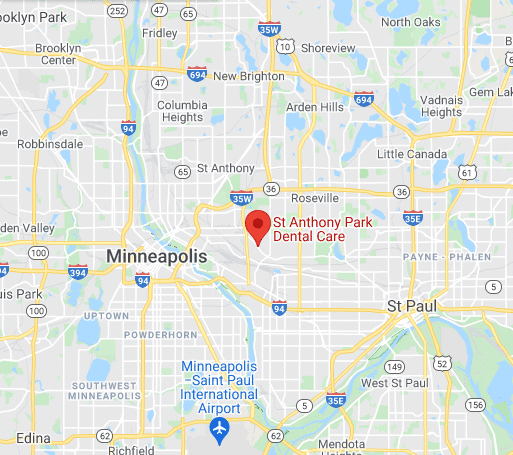What is the definition of dentistry, and what type of training do dentists complete?
The term dentistry refers to the diagnosis, treatment, and prevention of oral health conditions affecting the teeth, jaws, gums, and mouth. All dentists have completed a bachelor’s degree program and dental school, which adds up to a minimum of eight years of post-secondary education. Dentists have either a Doctor of Dental Medicine (DDM) or a Doctor of Dental Surgery (DDS) degree. Those who do not work in general dentistry may specialize in one of these areas:
- Cosmetic dentistry
- Endodontics
- Implant dentistry
- Oral surgery
- Orthodontics
- Pediatric dentistry
- Periodontics
Dental specialists typically complete two to three years of additional training before treating patients.
What is the importance of regular dental check-ups, and how often should I have them?
Patients from one year old to geriatric age should schedule a preventive care exam at least twice a year. We recommend coming in every four months if you are at greater risk of oral cancer or gum disease. Keeping your bi-annual check-ups is one of the most important things you can do for long-term oral health, other than regular brushing and flossing at home. Here are just a handful of benefits you can expect from regular preventive dental care:
- Professional teeth cleaning and polishing gives you a more attractive smile. Regular dental care prevents your teeth from becoming stained by food and drink.
- You can prevent common issues such as tooth decay or gum disease with regular preventive care. If you do have one of these issues, diagnosing and treating it as early as possible will help you to avoid more expensive and invasive procedures. Tooth extraction, bone loss, and fillings are just three common examples.
- Learning how to brush and floss your teeth the correct way from your dentist or dental assistant helps you to avoid the embarrassing problem of bad breath.
- Scheduling a preventive care exam every six months allows your dentist to form a baseline for oral health. For example, the dentists at St. Anthony Park Dental Care in St. Paul, Minnesota, will check younger patients for wisdom tooth eruption at each visit. Taking this approach enables the dentist to create a proactive treatment plan based on oral health changes between visits.
What options do I have to improve the appearance of my smile if I feel unhappy with it?
St. Anthony Park Dental Care offers several cosmetic dentistry procedures to improve the aesthetics of your teeth. Professional teeth whitening is our most popular cosmetic dentistry procedure. You can also opt for tooth-colored fillings when you need a cavity treated or really transform your appearance with a full smile makeover. One of our dentists would be happy to discuss the options available for a full smile makeover during a personal consultation.
What are the best ways for me to care for my teeth and gums between dental check-ups?
Here are several things our dentists recommend:
- Brush your teeth every morning and before you go to bed. If you have the flexibility in your schedule, we recommend brushing three times each day. Do not forget to floss your teeth at least once a day as well.
- Brush your tongue and gums along with your teeth. Although this might seem strange to you, it helps to remove plaque and keep your breath as fresh as possible.
- Look for toothpaste that contains fluoride to give yourself extra protection against cavities.
- Limit foods with added sugar and stop smoking or chewing tobacco if you have picked up either habit. Excess sugar in the mouth leads to plaque development that can cause cavities, while smoking or chewing tobacco increases your risk of oral cancer, gum disease, and teeth staining.
What is gum disease, and how do I know if I have it?
Gum disease develops due to a build-up of bacteria and plaque between teeth and on the gumline. The condition is treatable in the initial stages, but it becomes irreversible and may lead to bone and tooth loss if left untreated. Common symptoms of gum disease include:
- Abscessed tooth and/or receding gum line
- Chronic bad breath despite brushing and using mouthwash
- Gums appear red, irritated, or are bleeding
- Loose teeth
- Painful tooth sensitivity
Please contact our dental practice in St. Paul, Minnesota, at 651-645-8097 or frontdesk@sapdentalcare.com with additional questions or to schedule an appointment.


